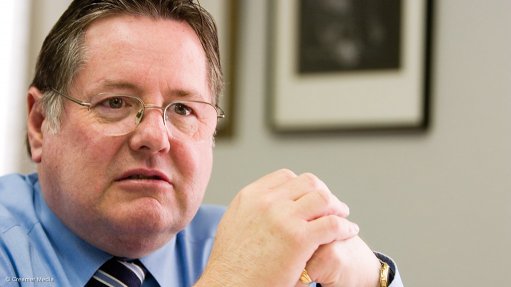
Huw Phillips
Photo by: Duane Daws
JOHANNESBURG (miningweekly.com) – After decades of undersupply, mining engineering graduates are now struggling to find employment.
Even more surprising, writes Professor Emeritus Huw Phillips in the latest edition of the Journal of the Southern African Institute of Mining and Metallurgy (SAIMM), is that some of the best graduates are being cut loose on graduation, despite having received mining industry bursaries throughout their undergraduate studies.
“It’s all too easy to regard young graduates, at the start of their working lives, as a cost rather than an asset,” chides Phillips, who was honoured with professor emeritus status last year after serving 27 years as a full professor at the University of the Witwatersrand’s School of Mining Engineering.
He reveals that graduates are having to resort to finding jobs anywhere they can and warns that they are unlikely to return.
While conceding that many of the graduates may at this stage be unsuitable for a career within the narrow confines of 'production', he pleads the case for them to be considered for employment in the increasingly important 'service departments' of minerals industry companies, where technical skills are in short supply.
“We all know that mining is a cyclic business and also that 'the darkest hour is just before dawn'.
“The industry must now have the foresight to develop this raw talent to ensure we’re well positioned to take advantage of the next upturn,” Phillips urges, outlining that the broadness of the education and the skills that the graduates have received equip them for a place in the general workforce, far from the mining industry itself.
“This once great industry is at a low ebb as it struggles to come to terms with the forces imposed on it by the past decade,” he adds, pointing out that particularly the gold sector has relied on brawn with physical effort delivering the product.
However, to remain competitive in the twenty-first century it will be brains rather than brawn that will make the difference.
Phillips describes the ten papers published as part of this year’s SAIMM student colloquium as being “high” in quality, with two of four on mineral processing dealing with the important issue of finding uses for South Africa’s growing mountain of discard coal.